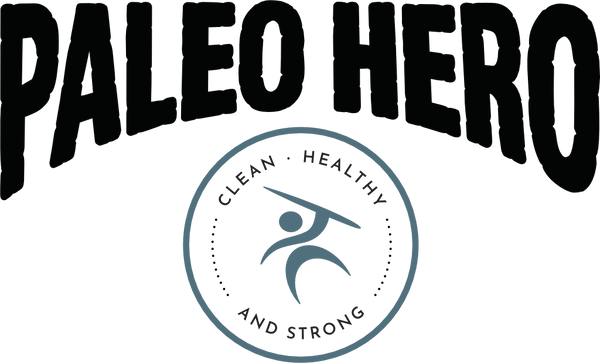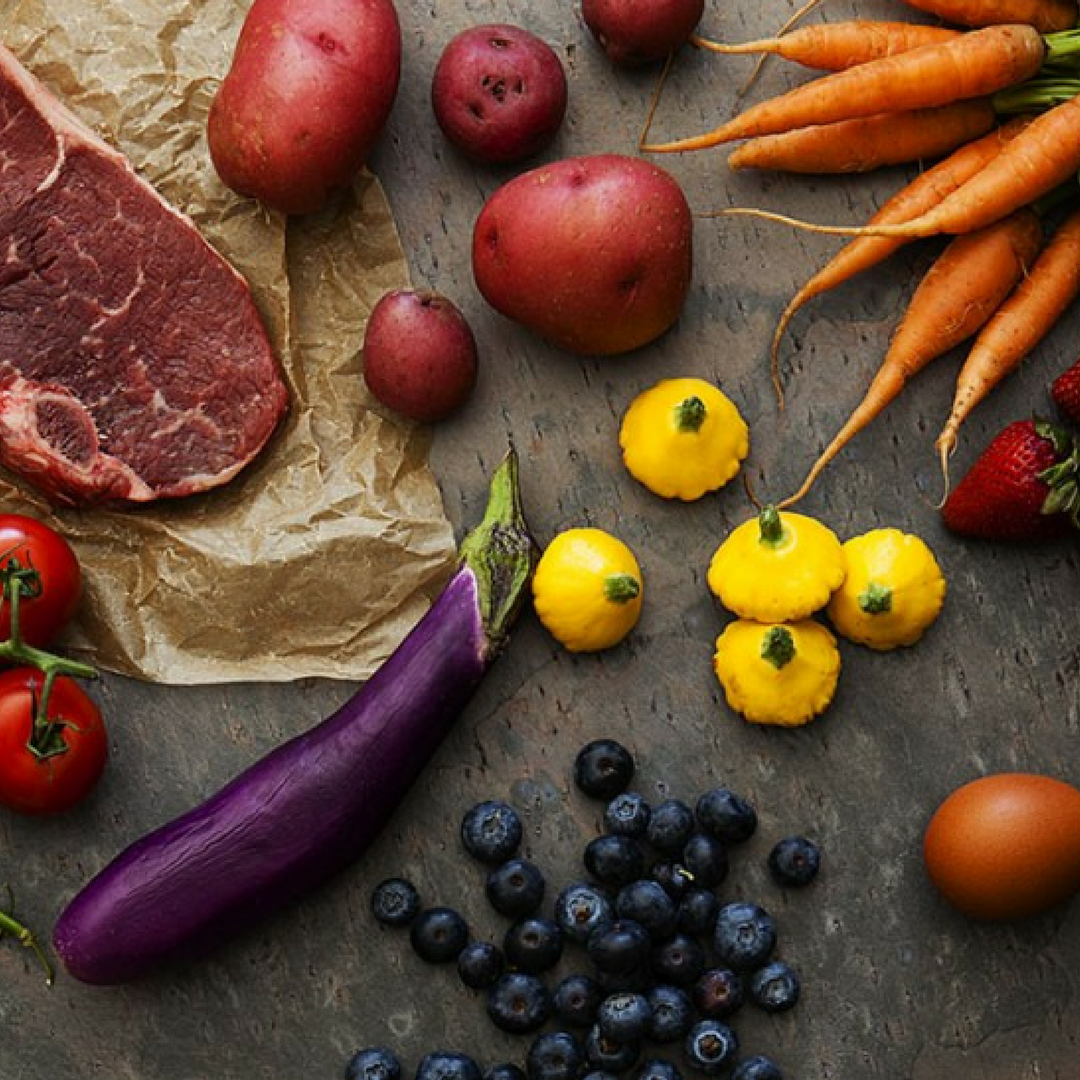These days, Paleo is everywhere. Australia-wide, people are becoming more familiar with the concept of embracing a primal lifestyle and are opening up to the idea that the processed-food- heavy Standard Australian/American Diet (SAD) has its flaws. Instead, it is becoming more recognised that a diet focused around nourishing, nutrient dense foods should form the foundations of a healthy lifestyle. But as our collective understanding of primal nutrition grows, so too do the misconceptions about eating Paleo. Here are five quick facts that you may not know about Paleo that demonstrate why embracing a primal lifestyle is an obvious step towards towards improving your overall well-being.
#1 Paleo offers a lot of room for variation
Probably the biggest misconception about eating Paleo is that it requires you to follow some sort of strict, structured “diet.” The fact of the matter is, there’s no one “true” Paleo diet for everyone. We're all different, and likewise the foods we eat are usually going to end up pretty different, too. Prominent figures in the ancestral eating community like Robb Wolf and Chris Kresser view Paleo as more of a ‘blueprint’ or ‘template’ - that is, a more flexible and individualised approach to eating. Think of Paleo as a set of general guidelines that you can customise based on your unique needs and experiences. Start by cutting out all of the nastier aspects of the typical SAD diet (grains, processed foods, dairy, alcohol, refined sugar) and eat only real, whole foods like vegetables, pasture-raised and grass-fed meats, fruits, nuts and seeds. But don’t be afraid to eventually experiment with primal “grey area” foods like fermented dairy, white potatoes or pseudo cereals like quinoa! You’re body will tell you whether or not you should be eating them. The only way to determine your optimal diet is to experiment and observe.
#2 Paleo is about more than losing weight - it’s about overall well-being
When people hear Paleo diet, they often dismiss it as being nothing but a temporary weight loss fad with no other health benefits - but they couldn’t be more wrong! Embracing a primal lifestyle is about more than shrinking your waistline. A nourishing diet full of nutrient-rich, whole foods has the capacity to completely transform your health. Many people who decide to embrace a more primal lifestyle report clearer skin, reduced allergy symptoms, more stable blood sugar, improved sleep patterns, more efficient workouts and countless other health benefits beyond fat loss. Of particular note is the transformative effect that nourishing, whole foods can have on digestion and absorption, especially in light of recent research that shows strong correlations between gut health and mental health. Eating Paleo and placing a greater emphasis on good nutrition will lead to better gut health, and gut health is invaluable for overall well-being. Clean, nourishing food will benefit your mind as well as your body!
#3 Paleo is about personal well-being - not dogmatic restriction
Dogma noun “a principle or set of principles laid down by an authority as incontrovertibly true.”
Let’s clear something up: there is no authoritative body that decides whether or not things are “Paleo.” Likewise, people who eat Paleo are not agreeing to blindly abide to a structured, rigid nutritional plan based on arbitrary rules. A common misconception about Paleo is that anyone who decides to embrace a primal lifestyle has to approach Paleo dogmatically - that is, treating the label “Paleo” like some sort of unquestionable truth in regards to food and healthfulness. When you decide to start your personal Paleo journey, it should be just that - personal. You’re concern shouldn’t lie entirely with whether or not something qualifies as being Paleo; you should focus on eating foods that make you feel good and are going to help you achieve more optimal health outcomes. We already know that there's no one “true Paleo diet” and likewise, eating Paleo isn’t governed by some authority that claims to be uniquely capable of interpreting all aspects of primal nutrition. Like we already know, Paleo is best viewed as a template - a starting point to build your healthy lifestyle around.
#4 Paleo is knowledge-based
Paleo is often unfairly grouped in with "fad diets" however the most passionate advocates for eating a more primal diet aren't marketers - they're scientists and experts in the field of nutrition who’ve dedicated their lives to understanding the path to optimal health. Prominent figures in the Paleo community like Gary Taubes, Robb Wolf and Nora Gedgaudas aren’t focused on wild claims or promises about weight loss - they are are proponents for sharing knowledge and helping people to better understand nutrition. And as more and more people embrace a primal lifestyle, many of the truths the Paleo community have been proclaiming for years - like the benefits of consuming plenty of healthy fats and the dangers of consuming excessive processed high-carb foods - are becoming more accepted by the more mainstream nutritional community. Paleo isn't some heavily marketed miracle weight loss diet - it's about valuing good nutrition and working towards achieving optimal health.
#5 Paleo can inform our other lifestyle choices
Our diet definitely isn’t the only thing to have drastically changed in modern times in contrast to our hunter-gatherer ancestors, so embracing a primal lifestyle is about more than just eating the right foods. Although diet should form the foundations of a healthy lifestyle, there’s definitely room for other lifestyle factors to be adjusted in favour of better, simple and healthier ways. Once you’ve started on your own personal primal journey, you’ll soon realise that Paleo can help improve the way you do things like work out and sleep. Most Paleo-advocates will tell you that we need to start thinking less about ‘exercising’ and more about moving. Our ancestors were lean, mean moving machines but they didn’t slug it out at the gym every day - they spent all day walking, sprinting, lifting, jumping, digging and searching for their next meal! Likewise, our ancestors didn’t routinely deprive themselves of sleep and or spend the hours leading up to bedtime staring at screens. You cannot be healthy without adequate sleep, and many aspects of our modern lifestyle impair our sleep quality.
Sleeping and exercising aren’t the only lifestyle factors that could do with some primal-ising, so keep an eye out for some more posts about how Paleo can inform our lifestyle choices in the coming weeks!
Do you have any other lesser known facts about Paleo? Let us know in the comments section!

